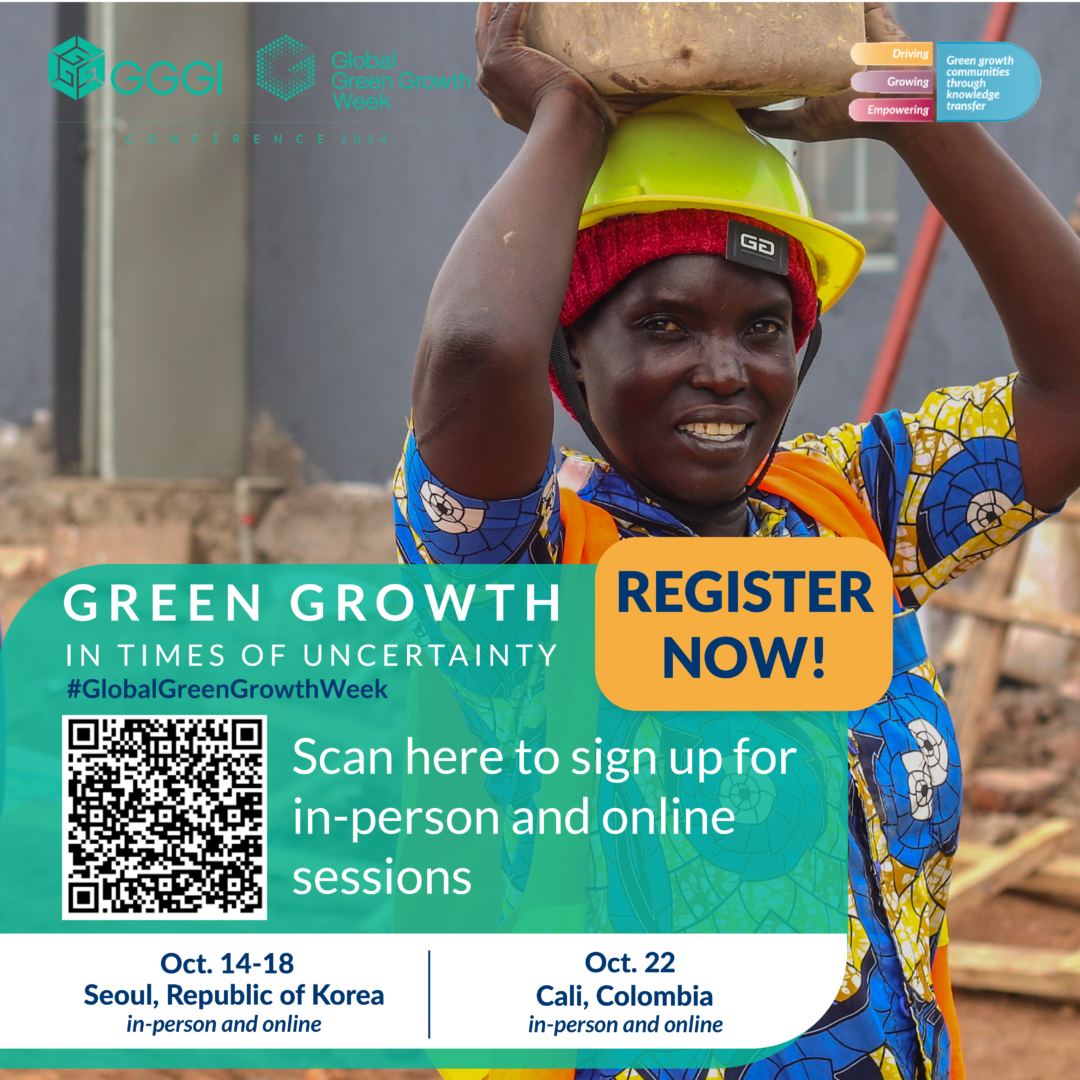From Green Growth Theory to Actions in the Phase 3
Since 2013, the Government of Indonesia through the Ministry of National Development Planning (Bappenas) as the Executing Unit, has collaborated with GGGI to mainstream green growth in Indonesia. The collaboration program, titled the Green Growth Program, went through the first phase from 2013 to 2015, and the second phase from 2016 up to the end of 2020.
Now the program has entered its third phase and the principles of green growth have moved from theory to practice and action. In this phase, the program is expected to mobilize substantial investment in economic sectors to promote sustainable use of natural capital.
Therefore, the third phase of the Green Growth Program, which is being planned through the preparation of the Country Program Framework (CPF) 2021-2025, will focus on the sectors of renewable energy, green cities and Special Economic Zones, as well as sustainable landscapes.
Some of the projects that have begun under the Green Growth Program Phase 3 are as follows:
- Sustainable Landscape Project
Phase 3 of the Green Growth Program (GGP3 2021-2025) between the Government of Indonesia and GGGI, is adjusted to be in line with the priorities and development targets of the Government of Indonesia in the National Medium-Term Development Plan (RPJMN 2021-2024). GGP3 is specifically designed to support the implementation of the Nationally Determined Contribution to the UNFCCC Climate Targets (NDC) and the achievement of the Sustainable Development Goals (SDGs).
The important priority areas supported under GGP3 include:
- Catalyzing and accelerating access to climate finance; green investment for Indonesia’s economic development
- Support Indonesia in strengthening its policy, planning and regulatory framework as well as institutional capacity to achieve green growth
- Achieving a sustainable and circular bioeconomy while maintaining healthy natural ecosystems (forests, peatlands, watersheds, and coastal resilience)
Further strategic directives were drawn from the Low Carbon Development Indonesia (LCDI) initiative led by Bappenas, which includes the pilot programs in six GGP3 provinces, namely East Kalimantan, Central Kalimantan, South Kalimantan, North Kalimantan, Papua and West Papua.
- Climate Action Enhancement Package (CAEP) Project
The Climate Action Enhancement Package (CAEP) project, funded by the NDC Partnership (NDCP), is an initiative focused on providing rapid support for increasing ambitions and implementation of the NDCs by strengthening community and government ownership.
Since February 2020, the Ministry of Environment and Forestry (KLHK) and GGGI have collaborated with NDCP to implement the CAEP project in Indonesia. Indonesia is an NDCP member who was awarded this program with a focus on NDC implementation, including increasing ambition, as part of the NDC (Updated NDC) renewal process for the Paris Agreement. In Indonesia, the CAEP project supports stakeholder engagement activities during the process of developing the Updated NDC document at the national level. Under this project, socializations were conducted at the national and subnational levels to promote the Updated NDC document to a wider range of stakeholders following its completion.
- BioCNG Project
The Biological Compressed Natural Gas (BioCNG) project will support member countries and partners to develop a dynamic BioCNG market by providing technical assistance to enable a supporting environment, reduce policy and technological barriers as well as create sustainable and viable local business models.
The program, which will be implemented for 2 years (2021-2022), focuses on increasing the BioCNG market from three waste categories, namely: organic municipal solid waste, wastewater, and agricultural waste. The proposed multi-country intervention on BioCNG will enable an inclusive clean energy development while providing study opportunities for three countries, namely: Indonesia, India and Thailand.
In Indonesia, the BioCNG project builds on GGGI’s work in renewable energy in the country and the ongoing collaboration with the Government of Indonesia. This project will focus on developing waste from the palm oil, livestock manure and organic waste sector as the production pipelines for BioCNG. The potential of these types of waste for BioCNG production will be realized by closing gaps in the regulatory framework, as well as improving the quality of raw materials and addressing the perceived high risk of the BioCNG business.
The adoption of BioCNG is expected to have several domestic benefits. These include sustainability profile improvements of the agricultural industry, particularly the palm oil sector, reduction of environmental pollution, landfill use as well as fuel import expenses. The main benefit is separating the necessary sources to help meet some of the nationally mandated targets for municipal solid waste management as well as the Bappenas/Ministry of National Development Planning Circular Economy strategy.
- Designing Article 6 Policy Approaches (DAPA) Project
This project consists of two phases: First, a scoping phase which is an initial assessment of national-level policies and sectors in order to identify the opportunities in GGGI Member and Partner countries, including Indonesia. The second phase, which allows further development of the potential of this policy approach in Indonesia and three other countries.
The project is currently in its second phase since December 2020, after the scoping phase which started in 2019. The Coordinating Ministry for Economic Affairs serves as the main partner (through the Assistant Deputy for Agro, Pharmacy and Tourism under the coordination of Deputy III).
The DAPA project aims to assist the Government of Indonesia in developing appropriate policy approaches for the Internationally Transferred Mitigation Outcomes (ITMO) and its related adjustments.
Through this third phase, the Green Growth Program is expected to further achieve its vision of improving well-being and social equity, while significantly reducing environmental risks and ecological degradation. Serious commitments and active participations from all partners who are included in the Green Growth Program Phase III are needed to continue encouraging the contribution and concrete actions of other stakeholders, including the general public, which in turn will help achieve the program’s overall objectives.




